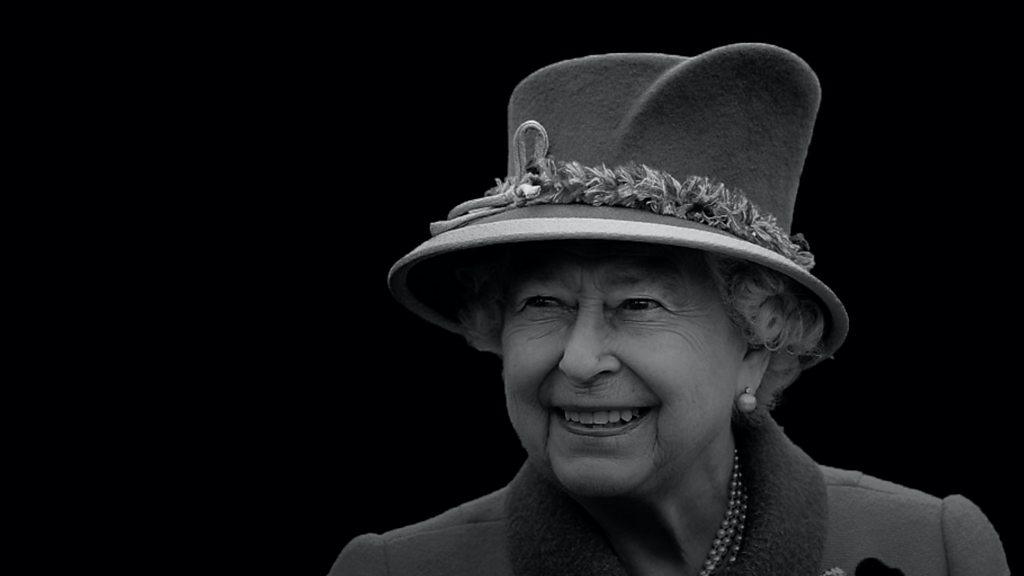Queen Elizabeth II: Gun salute tribute in Cardiff
- Published
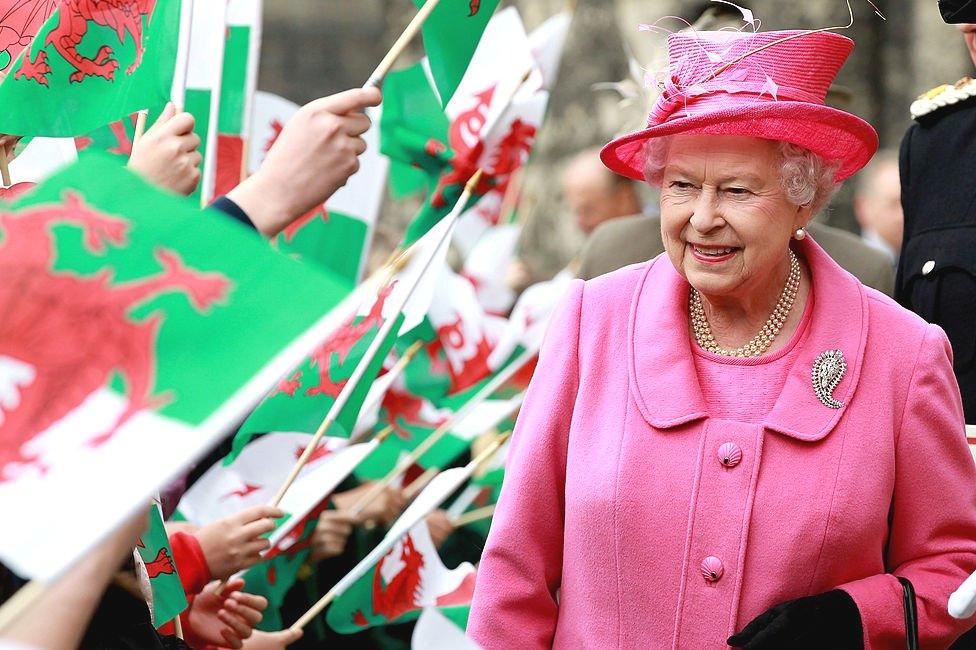
The Queen was a regular visitor to Wales - including this trip to Caernarfon in 2010
A gun salute of 96 rounds to mark each year of Queen Elizabeth II's life has taken place at Cardiff Castle.
It was carried out by the 104 Royal Artillery Regiment alongside gun salutes across the UK.
The gun salutes followed bells tolling at Westminster Abbey, St Paul's Cathedral and Windsor Castle, marking the death of the Queen on Thursday.
Churches across Wales were encouraged to ring their bells between 12:00 and 13:00.
The Welsh Parliament will also be recalled on Sunday so Senedd politicians can pay tribute to the Queen.
On Friday the Welsh government said schools and further educations setting "should remain open" during the period of national mourning.
It added that nurseries and higher education settings have "no obligation" to close, and each institution is free to decide how it wishes to mark the Queen's death.
A gun salute of 96 rounds was held to mark each year of the Queen's life
Choral evensong will take place at cathedrals, including St Davids, Pembrokeshire, and Brecon, Powys, on Friday evening.
Dean of St Davids, the Very Rev'd Dr Sarah Rowland Jones, said the Queen was a "splendid servant of God" and "servant of the people".
'Sadness, but also hope'
She said "many people" attended the cathedral on Thursday after hearing the news of the death.
"None of us have known anything different, so there will be a change now. Sadness, but also hope for the future," she said.
Flags are also being flown at half-mast, churches will be opened for prayer and reflection, while books of condolence are being opened and special services planned, the Church in Wales said.
Church bells have been rung across the country to mark the death of the Queen
A book of condolence is being opened at Cardiff's City Hall, with the public able to sign it from 14:00 or leave floral tributes outside the building.
Meanwhile people gathered at St John's Church in the city for a Eucharist service on Friday morning, where a minute's silence was held.
Following the gun salute at Cardiff Castle, which lasted about 20 minutes, some people became emotional, with the guards applauded as they packed up.
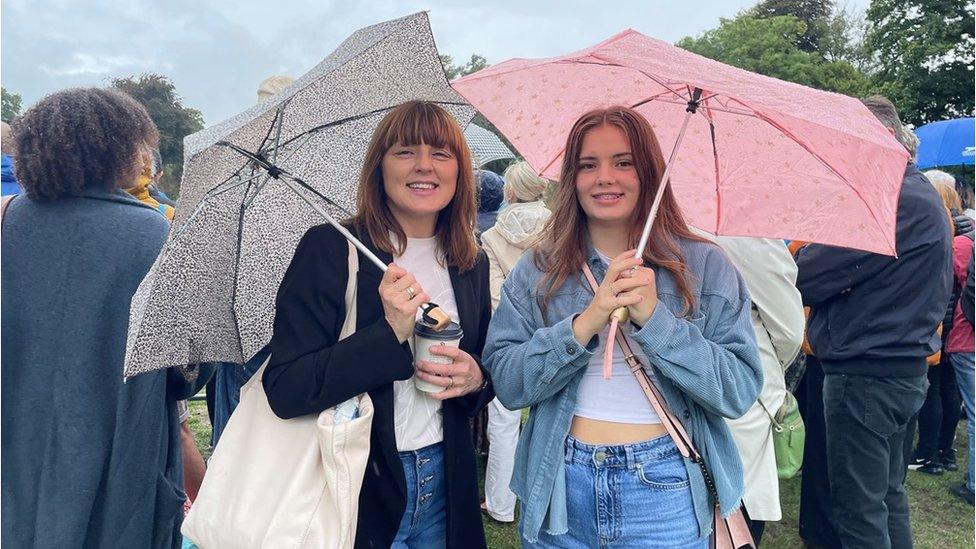
Joanna and Abi Sutcliffe said they wanted to show their respects by attending the gun salute
Joanna Sutcliffe, from Cardiff, said she "loves the monarchy" and wanted to watch as she thinks "sadly this might be the last large event as I don't really know if the monarchy has come to the end of its golden age".
Her daughter Abi added: "It's weird because I haven't known anything difference to the Queen, so it is weird to think it's ending."
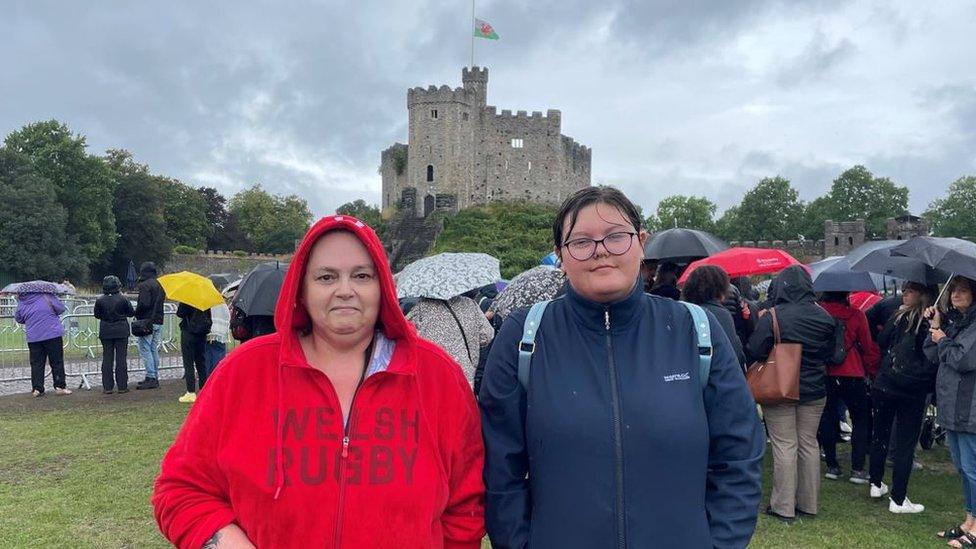
Sian McLeod is visiting from Australia and went to Cardiff Castle with her niece Cerys
Cerys Earles, 21 from Cardiff and her auntie Sian McLeod, 61, who is visiting from Sydney, Australia, said they had gone down to the castle to pay their respects, and to represent family who could not be there, especially older family members.
Ms McLeod said she wanted to show her appreciation for the Queen.
"Last night it was just a huge shock," she said, "I've spoken to a few of my friends in Australia and they're all devastated".
All local authorities were making plans, with people able to lay flowers at locations including; War Memorial Gardens in Newtown, Powys, at Victoria Gardens in Neath and the civic offices in Bridgend.
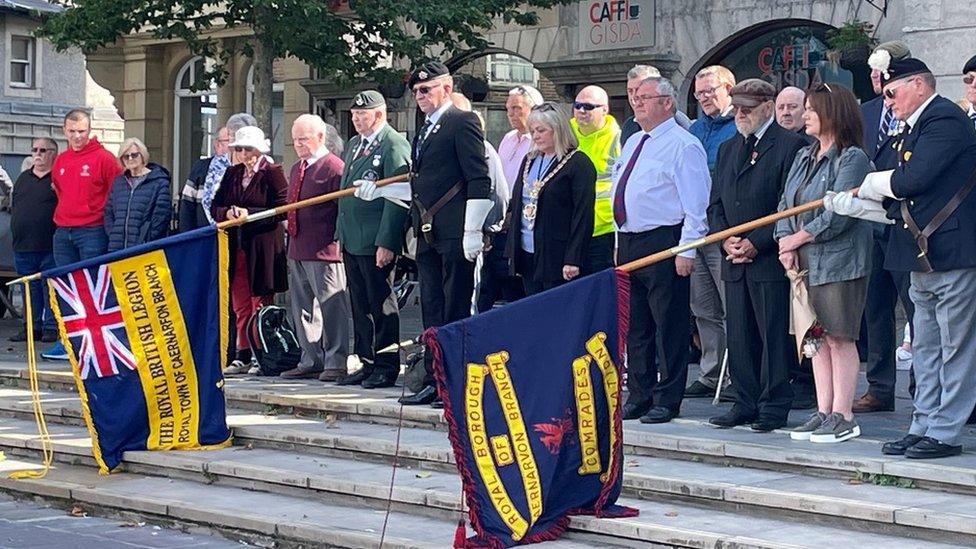
A two-minute silence was held for the Queen on Castle Square in Caernarfon following a 96 gun salute on Friday
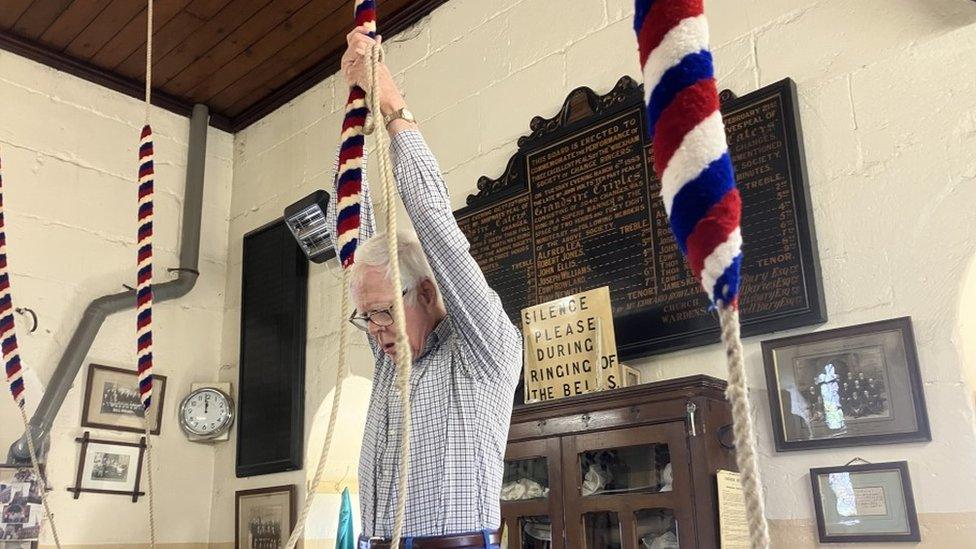
Muffled bells were rung around the country, including these by Tower Captain Gavin Price at St Giles' Parish Church in Wrexham
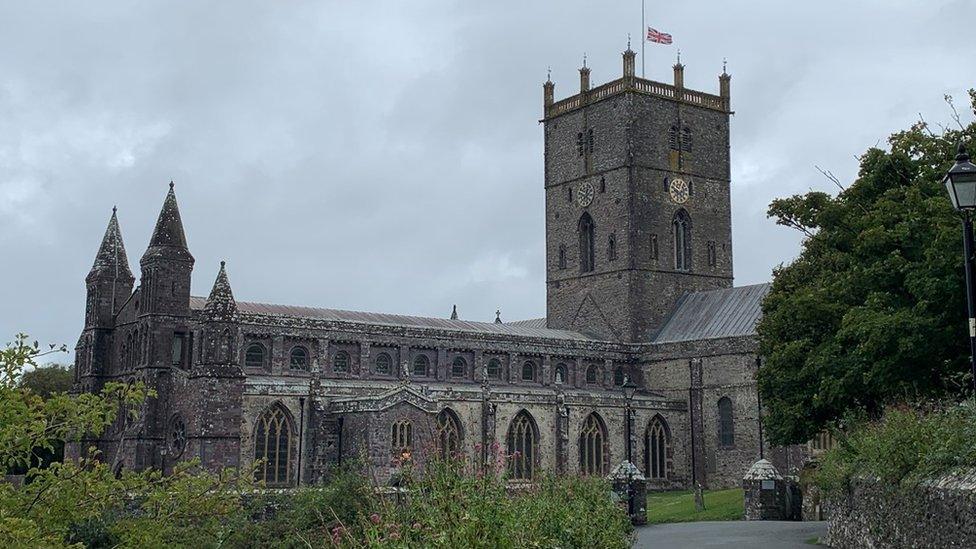
Among the churches ringing muffled bells and opening a book of condolence will be St Davids Cathedral in Pembrokeshire
Speaking to BBC Radio Cymru the Senedd's Presiding Officer Elin Jones said: "The Queen has opened every Senedd since devolution in 1999.
"She made certain that the Senedd's constitutional importance got recognised... so it's important that we recognise her contribution too."
Ms Jones described the Queen opening the new term in 2021 "with a smile on her face" and speaking "a bit of Welsh".
"She was very keen to speak to us as politicians and also people who represented different parts of Wales and who were part of the journey to guide us through Covid," she said.
"She was very interested in hearing those stories and personal experiences."
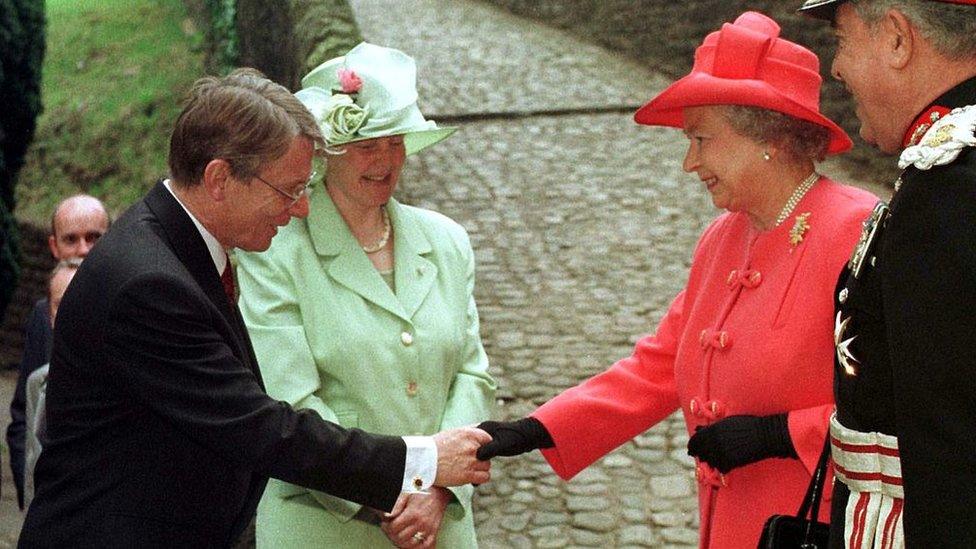
Alun Michael was first secretary of Wales, which later became the role of first minister
Former First Secretary of Wales Alun Michael said the Queen coming to Cardiff when the National Assembly - now called the Senedd - was opened was "the most important thing".
He said: "We understand that some sort of advice was given by officials against her coming, but she was adamant that she wanted to be there and show respect to the decision for devolution, show respect to the new situation here in Wales.
"That respect for Wales and of course to Scotland was something very important in her personal attitude towards the nations and regions.
"There was something very personal about it."
He added she "was someone who was very personable, lively with a sense of humour," who "showed real respect for the traditions over the years".
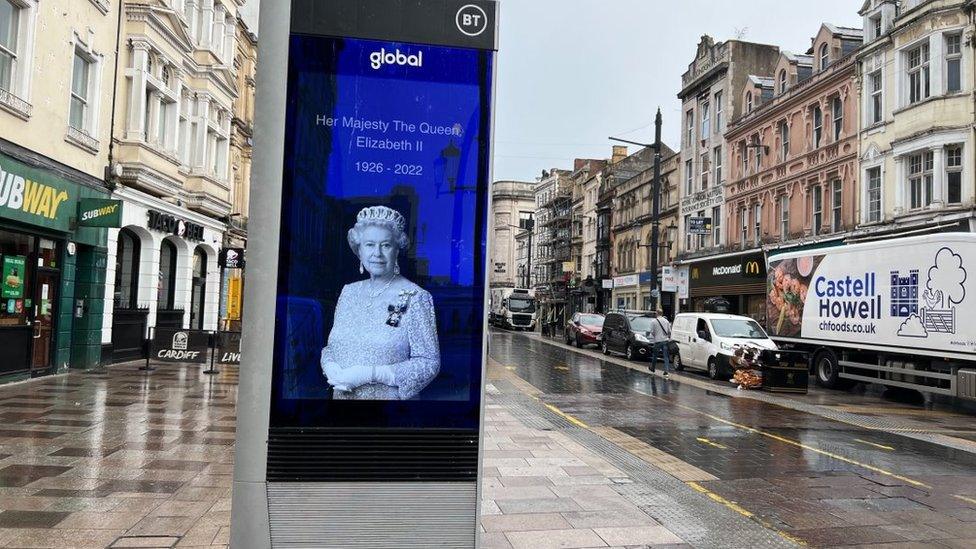
Tributes to the Queen are being shared on streets around Cardiff
Meanwhile, people have continued to pay tribute to the life of the Queen.
Lord Rowan Williams, former Archbishop of Canterbury and former Archbishop of Wales, described her life as "extraordinary".
"There's a huge amount of celebration. This extraordinary, long life that has just passed," Lord Williams told BBC Radio Wales Breakfast.
"Celebrating the devotion, the kindness, the stability that we've had. While there is bound to be a huge amount of grief, I think many people will be surprised at how personally they feel it.
"I think it's a life that's given us some foundations to build on and we have to think also of what we want to build."
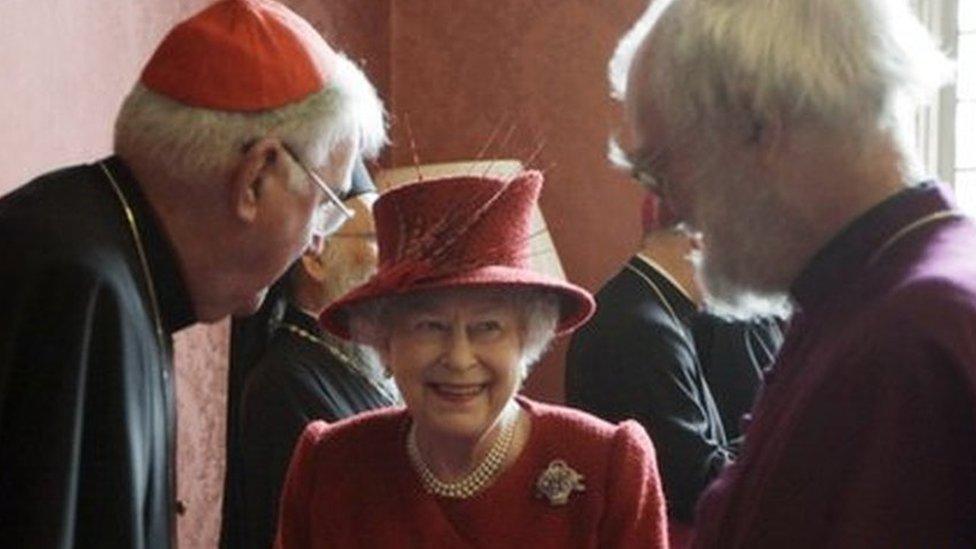
Lord Rowan Williams said he felt the Queen had a "motherly quality" of understanding situations
Describing her as "part of the cultural furniture we lived in", Swansea-born Lord Williams added: "People felt a personal connection with her because she was so unpretentious, apparently devoid of ego."
He said this was illustrated by the fact "people often commented that the Queen appeared in their dreams".
Lord Williams conducted the wedding of the Duke and Duchess of Cambridge in 2011 and said the Queen's delight was "very palpable".
"The fact William made such a happy marriage was a matter of great joy," he added.
Lord Williams, who was Archbishop of Canterbury from 2002 to 2012, described the Queen as "a good listener" with a "very dry" sense of humour, saying: "She had a great gift of putting things in perspective, grandmotherly, motherly quality, understanding the situation."
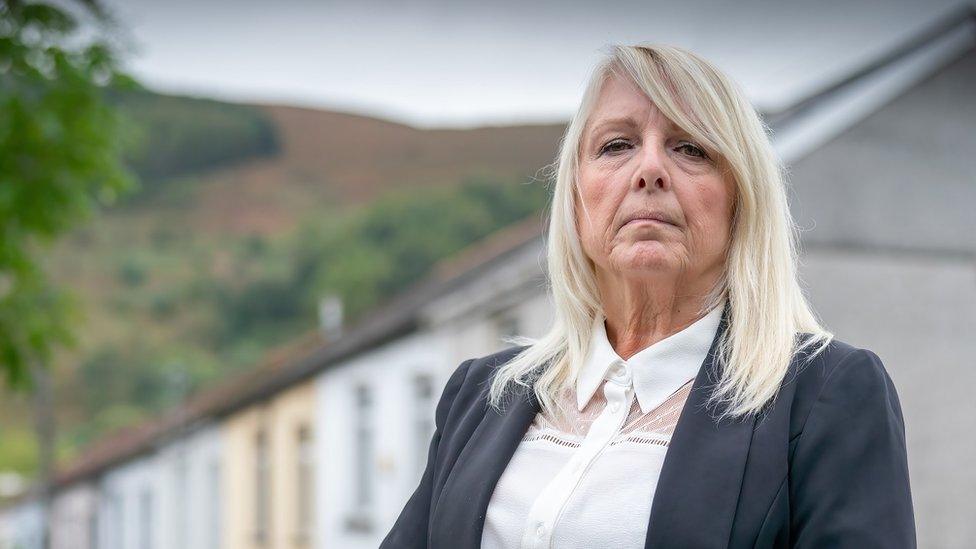
Gaynor Madgwick met the Queen a number of times
Gaynor Madgwick remembered being introduced to the Queen while she lay in hospital, having survived the Aberfan disaster in 1966.
In total, 116 children and 28 adults died when an unstable coal tip perched high above a valley slid down the mountain, engulfing Pantglas Junior School, in Merthyr Tydfil county.
"The Queen... she felt she was a mother to us in Aberfan," Ms Madgwick said.
"She came three times, four times, and also sent Prince Charles. It's been overwhelming, the sense of personal and community loss."
Lord-Lieutenant of Mid Glamorgan Peter Vaughan accompanied the Queen on many visits to south Wales and said she had "great empathy with people".
He grew up in Aberfan, and said: "It was great to see the Queen making connections with the next generation (there). I'm sure it will be with them for life."
Related topics
- Published8 September 2022
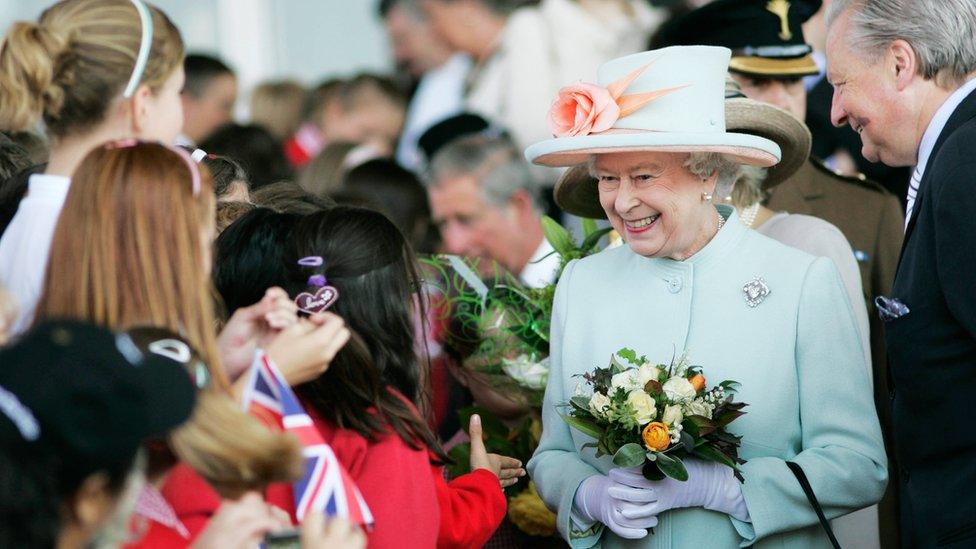
- Published8 September 2022
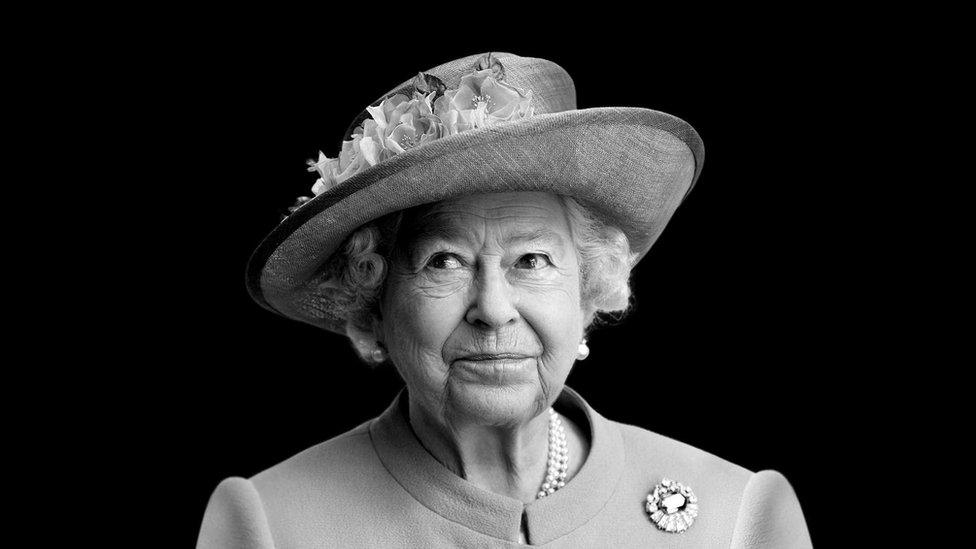
- Published8 September 2022
